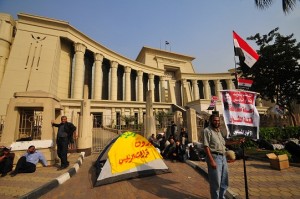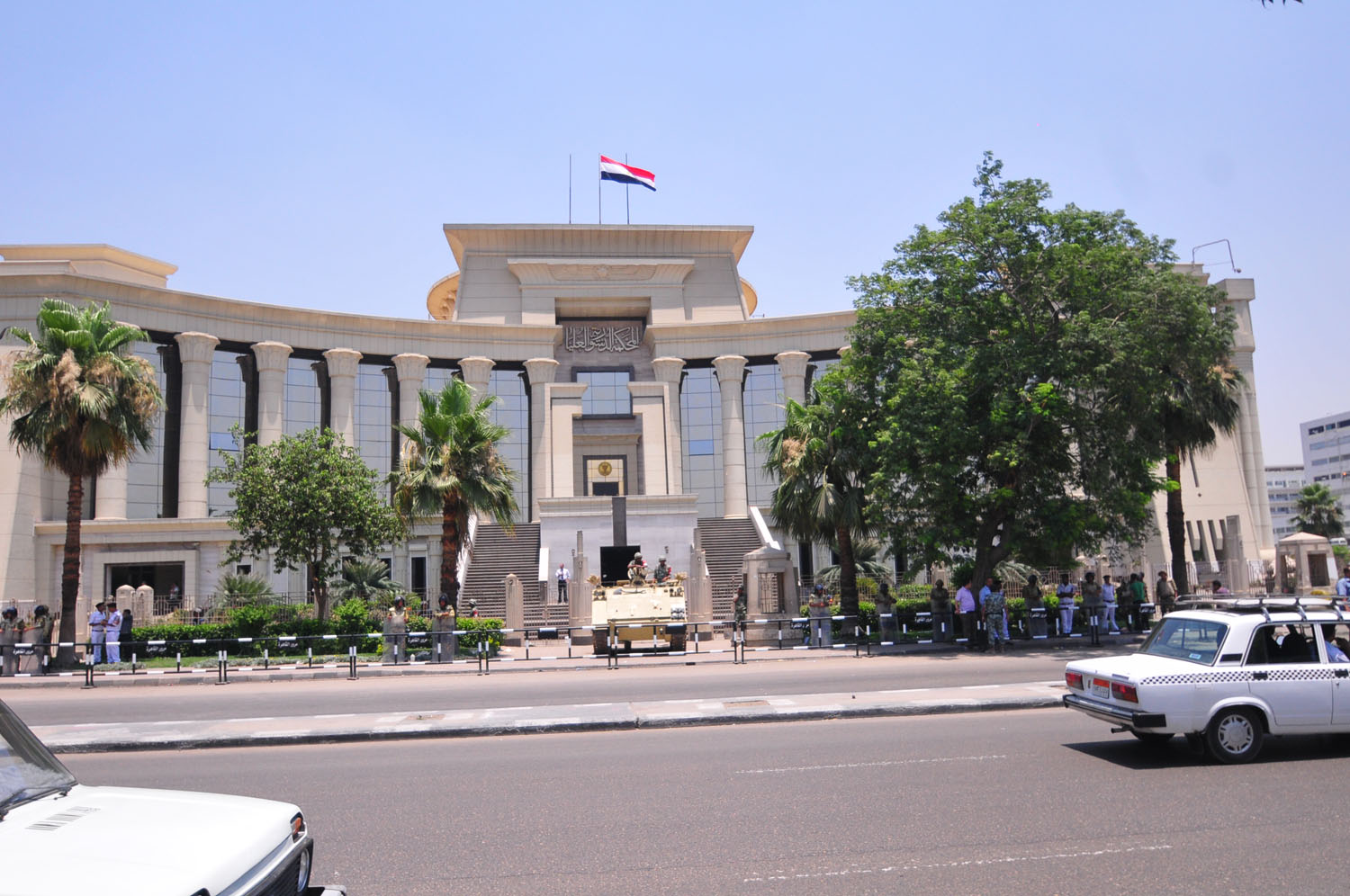
The Supreme Constitutional Court (SCC) decided on Sunday to consider the lawsuits demanding the dissolution of Shura Council and the Constituent Assembly on 15 January.
The lawsuits against the council and assembly were originally scheduled for consideration on 2 December but were postponed indefinitely due to Islamist protests outside the court.
SCC officially went back to work on Sunday, after the Islamist protesters ended their sit-in and left the area surrounding the court’s headquarters. Protesters removed their tents and cleaned the area of the sit-in before leaving.
The constituent assembly already completed its task by drafting the newly adopted constitution, and is now no longer existent. Additionally, the constitutional declaration issued by President Mohamed Morsy on 22 November gave Shura Council and the constituent assembly impunity against any rulings to dissolve them.
On Thursday, Morsy issued a presidential decree that removed the following judges from the SCC: Chancellor Tahany El-Gebaly, Chancellor Ragab Abdel Hakeem, Chancellor Hamdan Fahmy, Chancellor Mahmoud Ghoneim, and Chancellor Hatem Bagato.
The decision resulting in enacting article 223 of the new constitution, stating that the new formation of SCC should be constituted of its president and oldest ten members, while the rest of its members should return to their previous work locations.
Ibrahim Darwish, a constitutional expert, described the SCC decision as “useless,” explaining that both the Shura council and constituent assembly now have impunity from the22 November declaration. “However, if the SCC is neutral, it can issue a verdict stating that Morsy has no power to issue such declaration and, accordingly, it can consider dissolving Shura council and the constituent assembly.”
The SCC dissolving Shura Council or the constituent assembly, Darwish believed, is unlikely.
Chancellor Maher Samy, vice president and spokesperson for SCC, issued a statement condemning the besiegement of the court. He described the besiegement as an unprecedented action breaching the independence of judiciary, adding that those who conducted such actions “would never go unpunished.”

